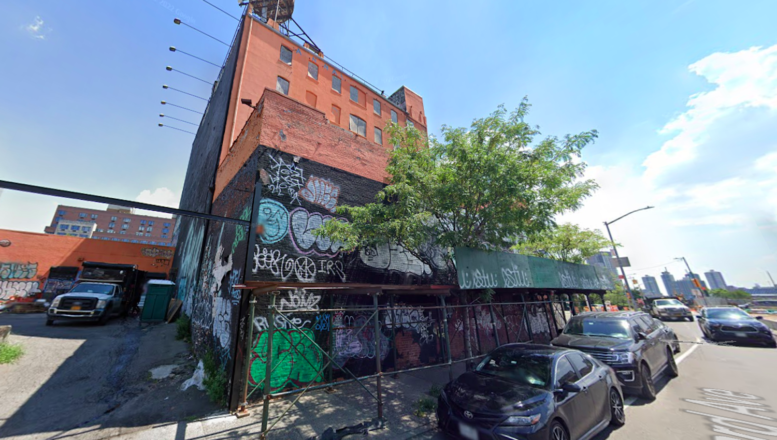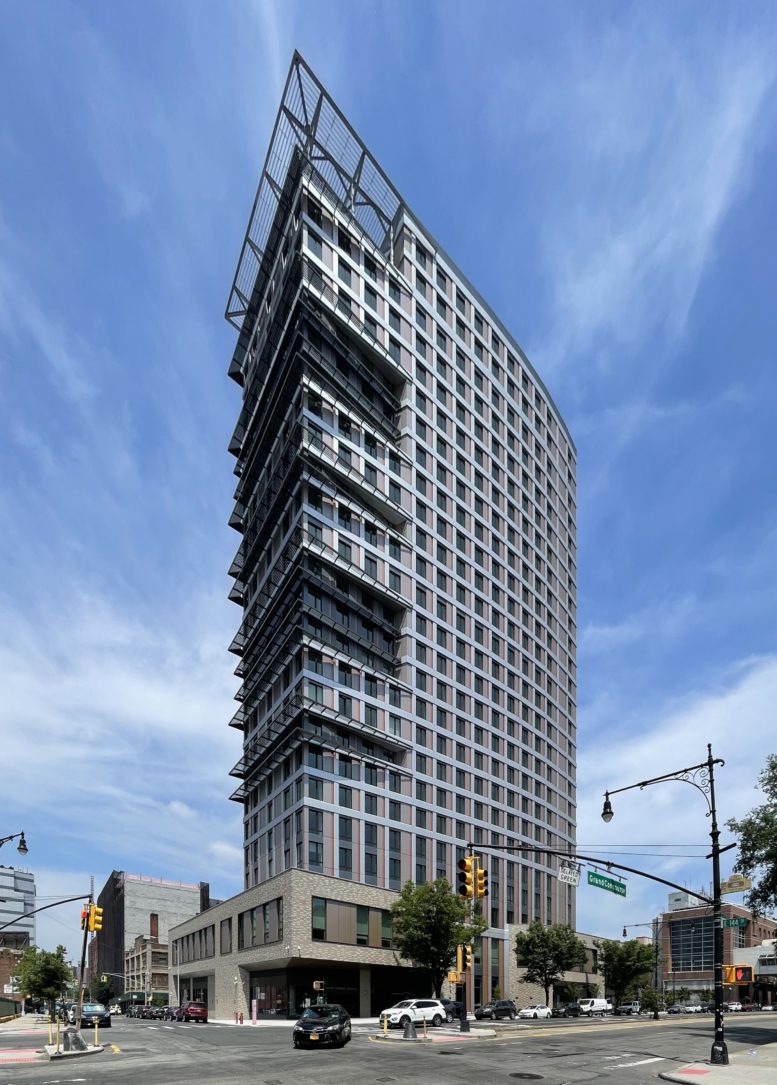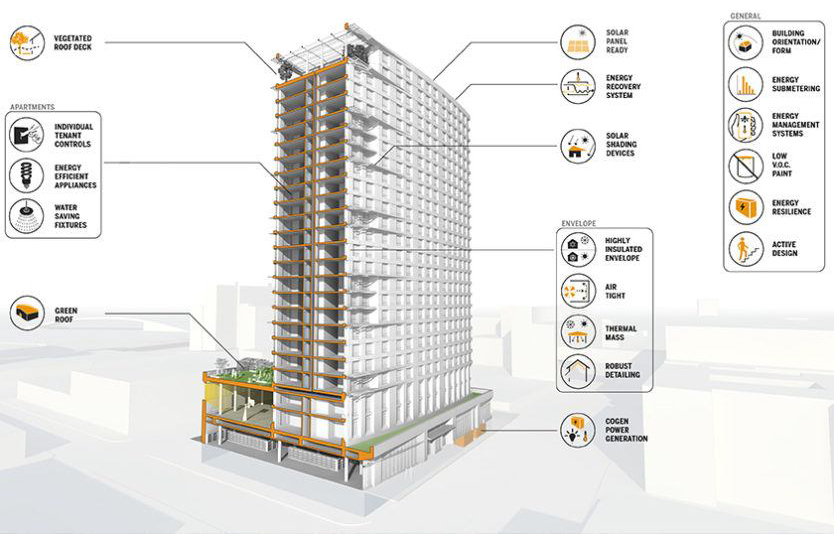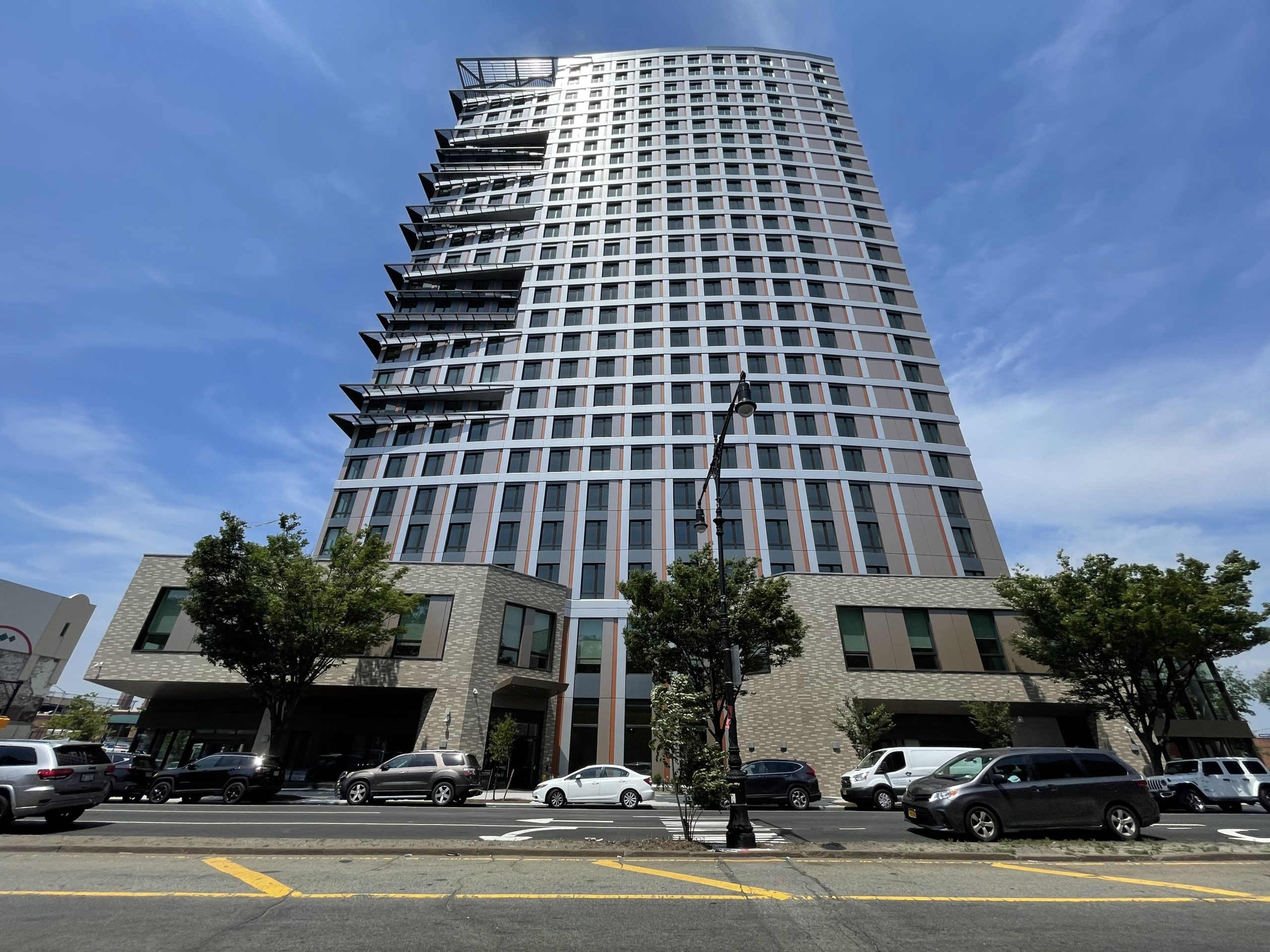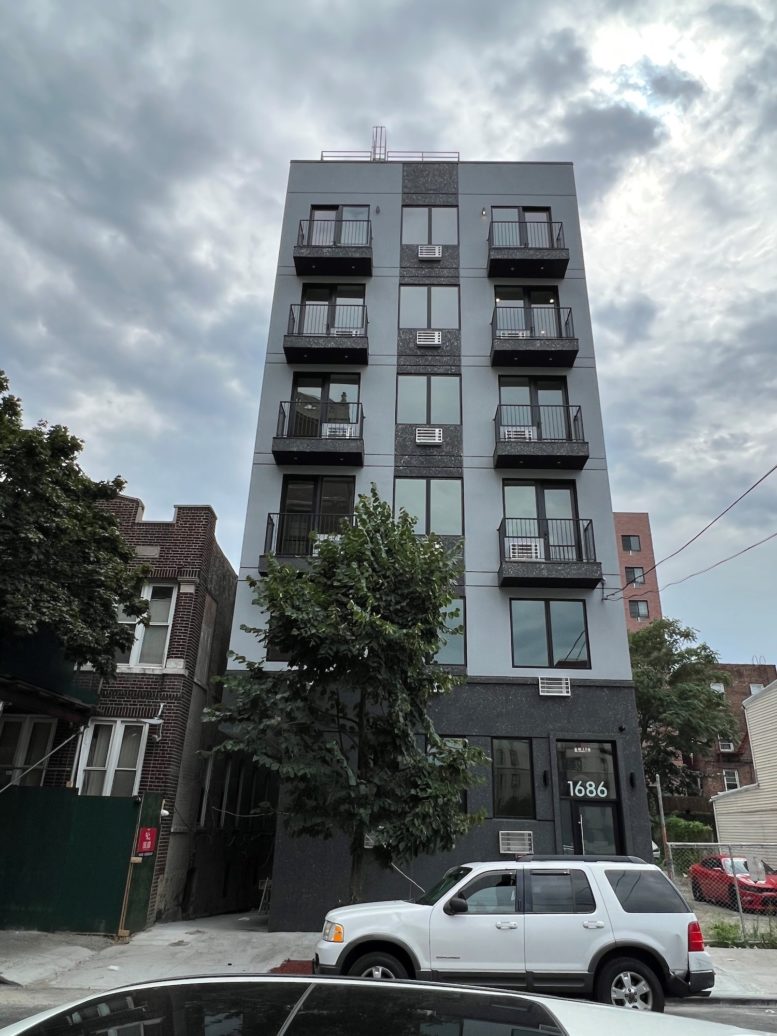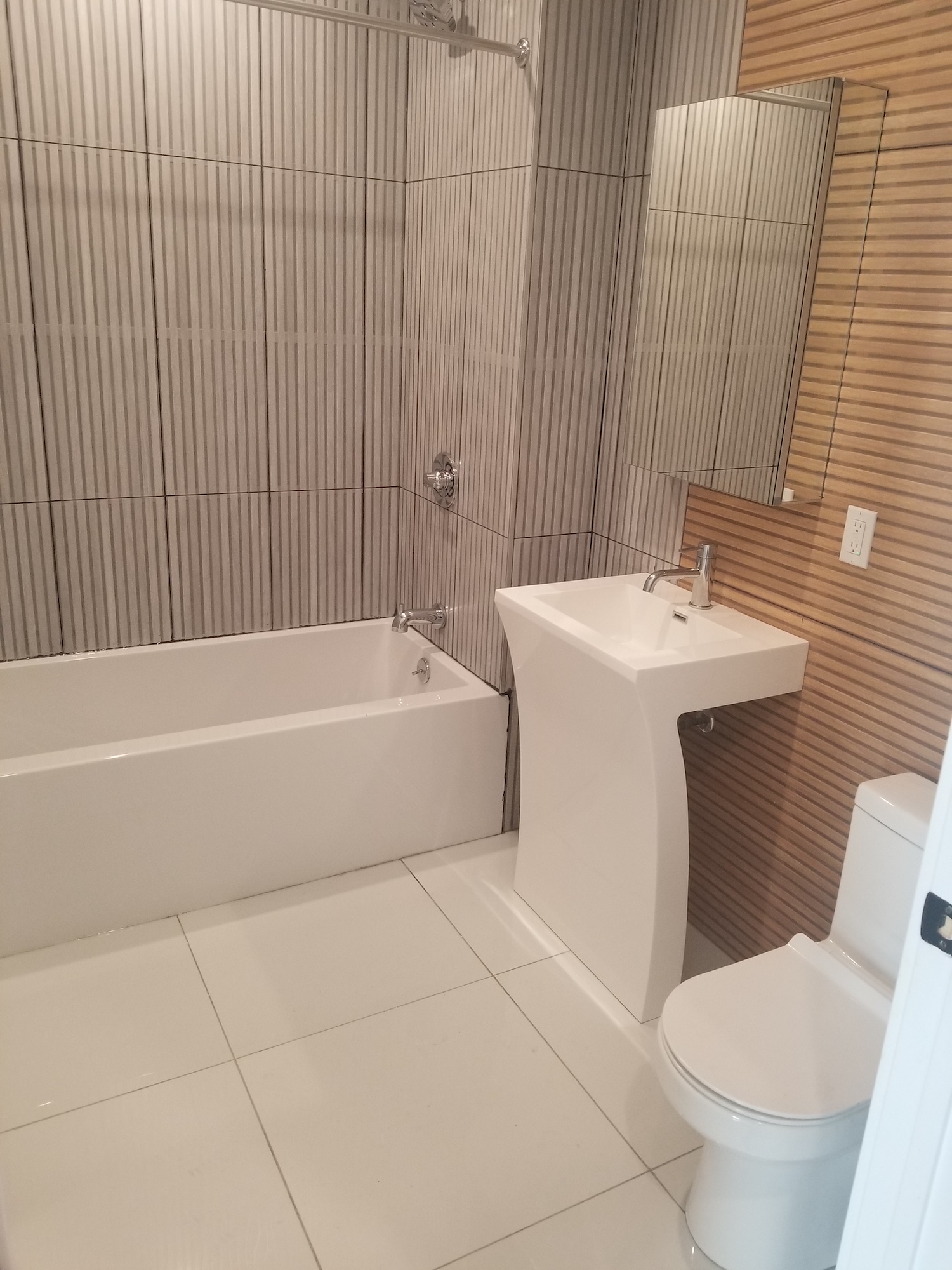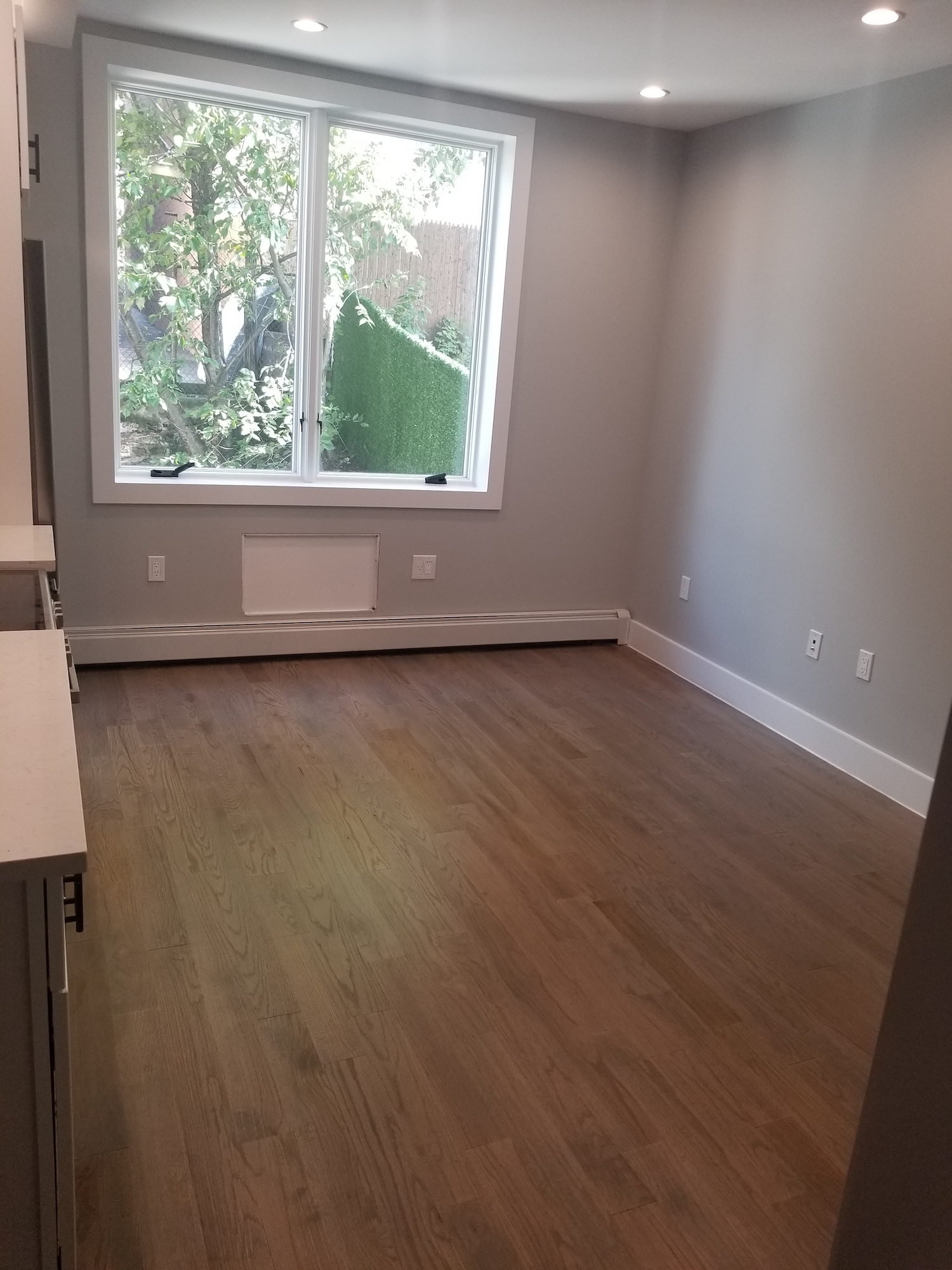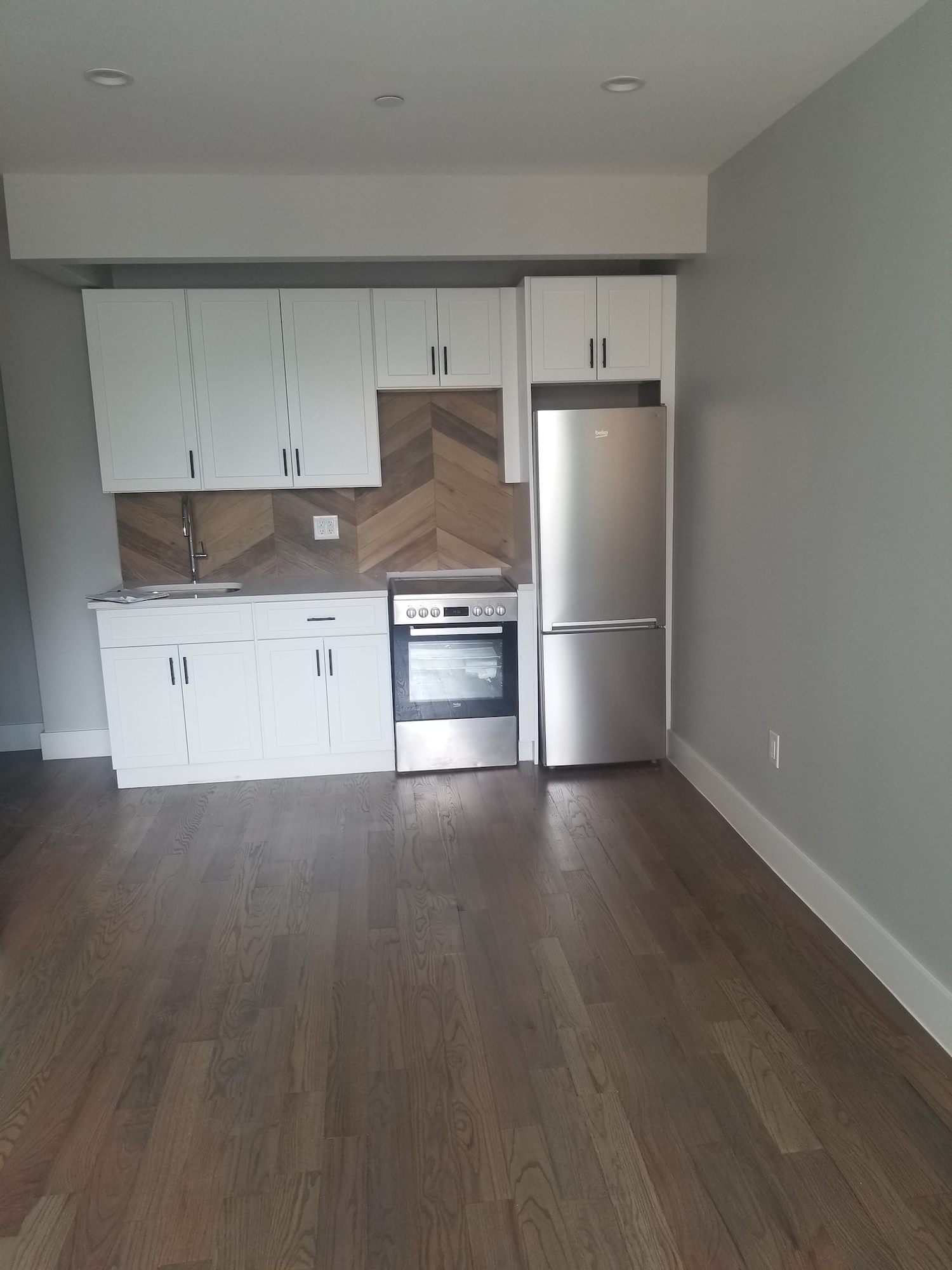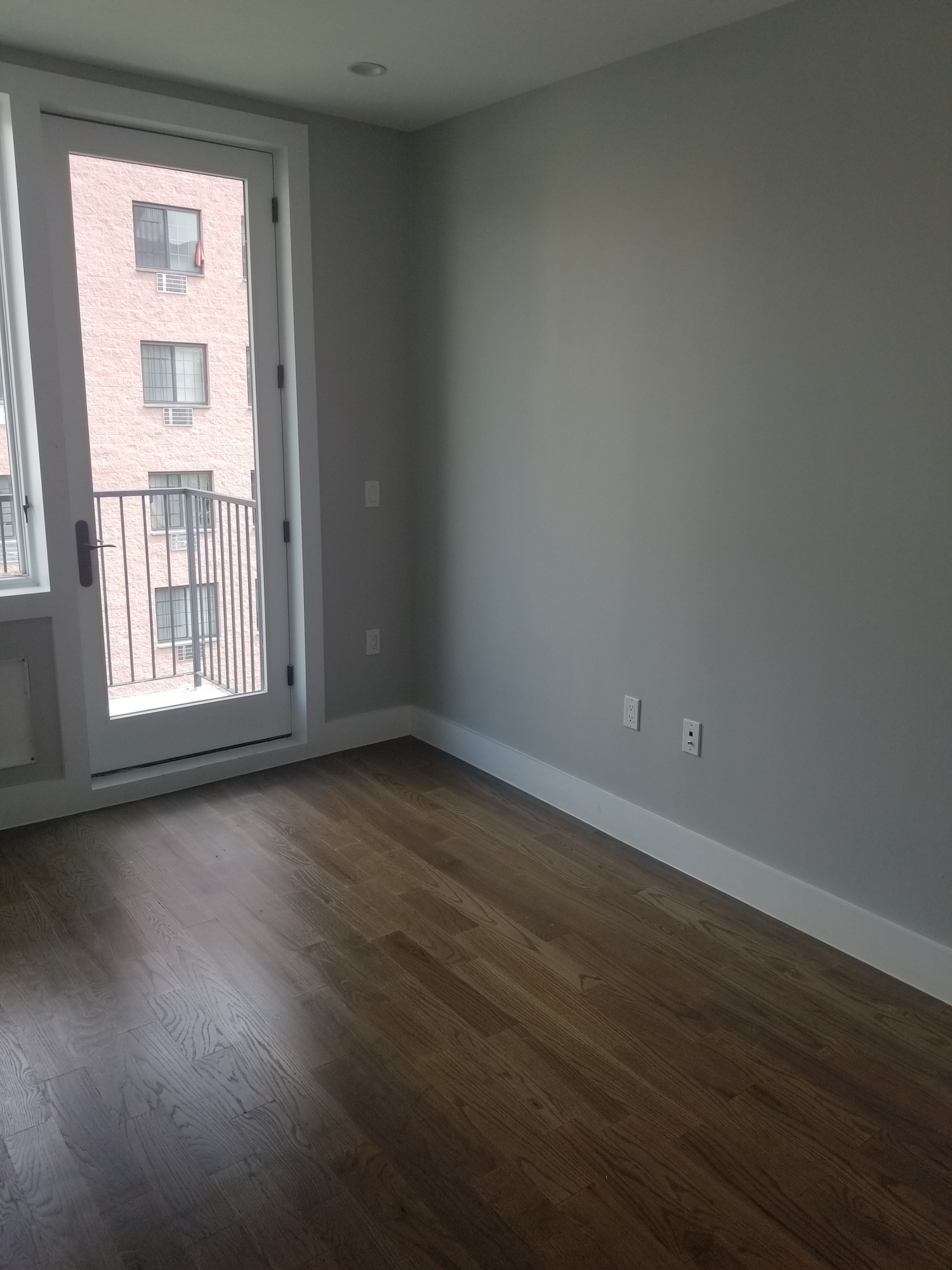As Strategy to Good Health, ‘Housing for Health’ Initiative Will Focus on Four Strategic Areas: Navigation Services, Medical Respite Beds, Affordable Housing on Hospital Property, and Social Service Support for Patients in Permanent Housing
Program Will Leverage NYC Health + Hospitals Land to Create Nearly 650 New Affordable Homes Over Next Five Years
New York City Mayor Eric Adams and NYC Health + Hospitals President and CEO Dr. Mitchell Katz today announced ‘Housing for Health’ — a comprehensive initiative to serve the health system’s large patient population experiencing homelessness by connecting them to affordable homes and housing supports. Recognizing that the chronic health issues of unhoused individuals cannot be treated without stable housing, this initiative seeks to improve their health and wellbeing of New Yorkers by focusing on four strategic areas: Navigation services, medical respite beds, affordable housing on hospital property, and social service support for patients in permanent housing. Over the course of the next five years, the health system plans to leverage land to create nearly 650 new affordable homes, which will be situated near NYC Health + Hospitals facilities to deliver continuity of care for vulnerable New Yorkers with complex medical needs. This initiative delivers on multiple aspects of Mayor Adams’ “Housing Our Neighbors: A Blueprint for Housing and Homelessness” and builds on the health system’s commitment to a whole-person approach to health care.
“It’s time to look at the full picture of New Yorkers’ health challenges, and to treat these challenges holistically,” said Mayor Adams. “It’s not enough to care for unhoused New Yorkers in the emergency room and then discharge them if they have no home to recover and heal in. Adults experiencing homelessness have three times as many hospital and emergency visits compared to those with stable housing, so it’s time we finally break this vicious cycle. I am proud to announce our ‘Housing for Health’ Initiative that will connect NYC Health + Hospitals patients to permanent housing or medical respite beds and will leverage Health + Hospitals land to create 650 units of affordable housing over the next five years. We know housing is fundamental to health, and this program brings us one step closer to achieving a healthier, more equitable, and more prosperous New York City.”
“Housing is health care. For many New Yorkers, NYC Health + Hospitals serves as their health home base,” said Deputy Mayor for Health and Human Services Anne Williams-Isom. “It’s where they seek care, advice, and support in times of need. With this initiative, many New Yorkers will be able to come home to safe, stable, and affordable housing thanks to Health + Hospitals and its creative leveraging of existing land. Every New Yorker deserves a permanent home, and this initiative gets us one step closer to that goal.”
“Housing is fundamental to good health,” said Mitchell Katz, MD, president and CEO, NYC Health + Hospitals. “Patients with chronic conditions like diabetes or hypertension cannot manage their condition without a safe and stable place to live. Too often, our patients stay in the hospital for far longer than they should because they have nowhere else to go. Housing for Health is our investment in these patients’ health outside of the hospital walls: To a safe, stable place to live so they can focus on their health.”
“Repurposing health facilities, building on vacant land, expanding access to supportive housing, and bringing on new housing navigators are all key steps in ensuring that people going through our health system have access to housing on the back end,” said Chief Housing Officer Jessica Katz. “The Housing for Health initiative, a key feature of the Adams administration’s housing and homelessness blueprint shows how our approach to health has progressed over the years, and as we strive to house all New Yorkers, this new effort will ensure those living with chronic illnesses and those who need additional support are connected to resources, services, and the health care they need to stay housed.”
“When I first entered the shelter system a couple of years ago, I was emotionally drained and so stressed out that I couldn’t sleep,” said Jesus Cerda, resident of the T building. “I had a mental break down, and I ended up the Psychiatric Unit at Harlem hospital. When I was discharged, my caseworker told me that I qualified for an apartment at the T building. In July, I was finally able to move in, and I couldn’t be happier. Now I have my own studio apartment. It is truly a fantastic feeling to have tranquility, the ability to cook my own meals, and focus on my next steps in life. I finally feel happy and in control of my life.”
In addition to improving health outcomes, Housing for Health will also reduce reliance on expensive emergency and hospital care. Last year, NYC Health + Hospitals provided care for 43,500 single adults experiencing homelessness — six percent of the more than 725,000 patients served by the health system. Adults experiencing homelessness have three times more hospital and emergency department visits than the general population. Through Housing for Health, the health system will expand cross-sector collaborations with community-based organizations, government agencies, funders, and affordable and supportive housing developers and owners committed to improving individual and community health.
Since January 2020, more than 1,000 patients have already been served under the program (over 800 patients have been placed in medical respite beds and over 400 patients have been placed in permanent housing, some of whom were placed in medical respite beds before.) The expanded initiative was announced today at the T Building, a former tuberculosis hospital on the campus of NYC Health + Hospitals/Queens that was converted into 200 apartments, 75 of which are supportive housing for patients of the hospital system formerly experiencing homelessness. The 125 other mixed-income units are affordable to households with incomes from 60 percent to 80 percent of Area Median Income. On-site case management — provided by the non-profit CAMBA and funded through the NYC 15/15 Supportive Housing Initiative — includes connection to medical, mental health and substance treatment, access to benefits, and financial literacy courses.
“Homelessness is a tragedy our city has long faced, but we can create change with the right team, collaboration and with resources,” said Talya Schwartz, MD, president and CEO, MetroPlusHealth. “We see patients overstay their time in acute and long-term care facilities because they do not have a safe and proper home to return to. Proper housing creates an opportunity for better health outcomes. For patients to live, heal, and thrive, we must support them and set them up for success.”
“Every New Yorker deserves safe, quality affordable housing, and we know, without question, that housing supports health and well-being,” said Leora Jontef, assistant vice president, Housing + Real Estate, NYC Health + Hospitals. “I’m proud that the nation’s largest public health system sees this connection and is taking action. Together with our colleagues across government and the non-profit and private sectors, we are bringing health care to the table to help deliver housing for vulnerable New Yorkers.”
Housing for Health Strategies
Housing Navigation Services: NYC Health + Hospitals counsels and helps eligible patients to access and apply for supportive, affordable, and market-rate housing, as well as rental subsidies. This resource is vital to navigating the New York City complex housing landscape. Over 400 people to date have been placed in permanent housing through this program. The city also plans to expand housing navigation support for patients by partnering with an experienced, community-based organization to provide services and help place even more patients into permanent homes.
Medical Respite Beds for Frail Patients: NYC Health + Hospitals funds the largest medical respite bed program in New York City. Its 51 medical respite beds in Manhattan and the Bronx offer social service support for medically frail patients who no longer need hospitalization but still require access to medical care. Medical respite services allow patients to rest, recover, de-escalate, and heal in a safe environment after a major health episode. The health system partners with two experienced nonprofit organizations — Comunilife and Institute for Community Living — which provide holistic care coordination, medically-tailored meals, and access to wound care and physical therapy. Patients also receive case management support to help identify future housing options.
Dedicate NYC Health + Hospitals Land for Affordable and Supportive Housing: NYC Health + Hospitals leases land for supportive and affordable housing developments for low- and moderate-income New Yorkers, including seniors and those formerly experiencing homelessness. Recent projects include 89 supportive and affordable housing units on the campus of NYC Health + Hospitals/Woodhull and over 200 affordable housing units to be built on the campus of NYC Health + Hospitals/Morrisania. Overall, there are 1,600 apartment units on NYC Health + Hospitals land. Housing for Health plans to leverage additional land to create nearly 650 new affordable homes near NYC Health + Hospitals resources to deliver continuity of care for vulnerable New Yorkers.
Fund Social Support Services in Permanent Housing: NYC Health + Hospitals funds on-site social services to help patients stabilize and thrive in their new housing environment. Support services individualize support to ease the transition from homelessness to permanent housing, assistance with accessing benefits, connecting to local food pantries and employment services, and continued care coordination.
“Health and housing are inextricably linked, especially for those experiencing homelessness, so we’re proud to support the Housing for Health initiative led by NYC Health + Hospitals,” said New York City Housing Preservation and Development Commissioner Adolfo Carrión Jr. “Permanent, affordable housing is essential to putting our unhoused neighbors on a path to wellness and stable living. We look forward to working with NYC Health + Hospitals to leverage public hospital land and connect more vulnerable New Yorkers to the housing they need and deserve.”
“This initiative exemplifies this administration’s continued commitment to prioritizing the expansion of holistic housing solutions to address the unique needs of our most vulnerable New Yorkers,” said New York City Department of Social Services Commissioner Gary P. Jenkins. “As part of the city’s all-hands-on-deck approach to addressing homelessness, we are grateful for NYC Health + Hospitals’ incredibly vital role in our overall efforts to ensure the health and safety of New Yorkers experiencing homelessness, as we strengthen access to care and stable housing for vulnerable communities citywide.”
“Affordable housing is becoming increasingly hard to find in New York City, and the global pandemic exposed the extent of the housing crisis hurting our most vulnerable communities,” said U.S. Senator Kirsten Gillibrand. “The Housing for Health initiative would provide a much-needed service for NYC Health + Hospitals’ patient population experiencing homelessness. I want to thank Mayor Adams and NYC Health + Hospitals for recognizing that stable housing plays a crucial role in the ability to treat chronic health conditions and working towards finding solutions that help improve health outcomes through social support services and permanent housing.”
“Supporting the health and welfare of New Yorkers, especially the most disadvantaged among us, is one of our primary responsibilities,” said U.S. Representative Adriano Espaillat. “The Housing for Health initiative is the latest initiative from Mayor Adams that prioritizes vulnerable residents. Today’s announcement ensures patients experiencing homelessness will have the ability to connect to affordable housing, social and support services that will be vital to their recovery. This initiative will help thousands of New Yorkers and is a valuable step in achieving health equity across our city."
“As New York City continues to experience record levels of homelessness, the need for innovative and compassionate solutions is paramount”, said New York State Senator Roxanne J. Persaud. “Integrating supportive and permanent housing availability into NYC Health & Hospitals’ continuum of care is a timely step in the right direction.”
“I commend the efforts made regarding the Housing for Health initiative at NYC Health + Hospitals/Queens,” said New York State Assemblymember Alicia Hyndman. “Not only will people experiencing homelessness have secured affordable housing, but it will also be convenient for them to seek treatment in proximity if they experience any ailments, especially for children. As winter nears, this is an effective plan to alleviate as much homelessness possible. People are in need of assistance, and we must provide them with the necessary resources to overcome any obstacles they are experiencing. Creating nearly 650 new affordable homes in the next 5 years will increase the morale of the community and provide a sense of hope for those facing this challenging situation.”
“The Housing for Health Initiative is just what the doctor ordered. It recognizes that we must proactively address the social determinants of health rather than waiting for people to become sick,” said New York State Assemblymember Jenifer Rajkumar. “When people have a roof over their heads, they are free from exposure to the elements, crowded and unsanitary conditions, and psychological stress stemming from homelessness. As a result, housed individuals are five times less likely to need inpatient hospital treatment, and have shorter hospital stays compared to the homeless. The mayor and NYC Health + Hospitals will tackle the intertwined challenges of housing and public health by constructing more affordable housing, helping people navigate housing programs, providing support services when they receive housing assistance, and offering respite beds. This investment is a prescription for better health as well as cost savings: studies find that housing the homeless creates a net savings of up to $29,000 per person per year due to fewer emergency room visits.”
“Our housing crisis is a public health crisis, and this program seeks to address the underlying cause of both,” said Comptroller Brad Lander. “By expanding supportive housing, the city can help break the cycle of systemic homelessness and chronic visits to the emergency room as a path to social services. Housing stability and security will create a more thriving future for everyone who calls this city home.”
“Safe and stable housing is the foundation for healthy communities,” said New York City Council Speaker Adrienne Adams. “Connecting New Yorkers experiencing homelessness with affordable housing, medical services, and other supports will improve their health and well-being. I fully support expanding the Housing for Health Initiative to meet the needs of New Yorkers it can best serve, and look forward to helping ensure the necessary coordination occurs to achieve continued care that will maximize its impact for our city."
“For many years, our city’s public health system has been a champion of a holistic approach to healthcare, understanding that anyone’s wellbeing is directly affected by access to resources and stability around them. The Housing for Health initiative simply continues to build on this approach while specifically catering to the unique needs of those experiencing homelessness,” said Brooklyn Borough President Antonio Reynoso. “Important to note is that this initiative wisely repurposes underutilized land throughout our city to create affordable homes with valuable wraparound services and a direct connection to care for some of our city’s most vulnerable neighbors. Thank you to NYC Health + Hospitals and its leader Dr. Katz, as well as Mayor Adams, for their collaboration on this important work.”
“Homelessness is far from just a housing issue —its impacts on families experiencing housing insecurity and on our city as a whole are generational and intersectional. Arguably at the top of that list, however, is the often-overlooked impact of homelessness on one’s physical and mental wellness,” said Queens Borough President Donovan Richards Jr. “As our city faces dueling housing and health crises, innovative solutions to address both in one swoop have never been more important. I look forward to working with the Mayor’s Office, NYC Health + Hospitals and all our partners to make Housing for Health as successful as possible.”
“Housing for Health” provides a bold, comprehensive solution to New York City’s housing insecurity crisis through a partnership with NYC Health + Hospitals that allows them to extend patient and wellness care to patients experiencing homelessness,” said Bronx Borough President Vanessa Gibson. “Not only will navigation services and medical respite beds be provided, “Housing for Health” goes further by placing them in housing on their property with wrap-around care and emergency room services to treat the emotional, mental, and physical well-being of their patients. I want to thank Mayor Adams and NYC Health + Hospitals for developing and implementing a creative and compassionate solution that provides our homeless population with the dignity and honor they deserve.”
"NYC H+H hospitals deliver healthcare to anyone who comes in seeking it, regardless of their ability to pay, immigration status, or any other consideration. That's out of a commitment to treating healthcare not as a commodity for purchase, but a basic human right that we must respect,” said New York City Councilmember Tiffany Cabán. “Housing too deserves the status of a public good, to be owned and controlled by the people who live and work here, rather than a ticket to windfall profits for billionaire real estate tycoons. Indeed, housing is healthcare. A comfortable, reliable home is an essential pillar of a safe, healthy, dignified life. Housing for Health is a step toward a safer, healthier city where New Yorkers' basic needs aren't exploited for profit by the rich but guaranteed by the public."
"Access to safe and stable housing and housing resources are vital to improving New Yorkers’ health outcomes,” said New York City Councilmember Kamillah Hanks. “Housing is one of the greatest crises plaguing our city, and this initiative will not only help address this crisis for NYC Health + Hospitals patients experiencing homelessness but will also assist with navigating the multitude of social services available to them. This is a prime example of meeting people where they are and working to find tangible solutions to the issues they face."
“I applaud efforts by Mayor Adams and NYC Health + Hospitals to connect patients experience homelessness to stable, permanent, affordable housing,” said New York City Councilmember Ari Kagan. “I strongly believe that the only way to solve our homelessness crisis is to create more affordable housing, to provide mental health services, treatment from substance abuse problems, as well as to offer employment training and other important support to New Yorkers who need them most. This is a step into the right direction, and we have to do more of that.”
“Housing is a human right, along with healthcare. We cannot advocate for a healthier city without acknowledging the existing crisis of lack of affordable housing, first. We commend Mayor Adams on announcing “Housing for Health”, aimed to alleviate emergencies experienced by our population of unhoused individuals across our city,” said New York City Councilmember Shekar Krishnan. “It is imperative that we provide all New Yorkers with access to truly affordable housing and healthcare."
“Currently, over 55,000 New Yorkers are experiencing homelessness, including over 17,500 children. The only sustainable and just way to address this epidemic is to provide safe, long-term housing alongside access to medical and mental health services, employment opportunities, and food assistance,” said New York City Councilmember Farah Louis. “The Housing for Health initiative takes a crucial step toward interrupting the cycle of housing insecurity, and I look forward to working with Mayor Adams and NYC Health + Hospitals to implement these services in District 45.”
“New York City must do everything it can to end and prevent homelessness,” said New York City Councilmember Carlina Rivera. “We must implement long-term strategies that treat housing as healthcare and provide person-centered support to our most vulnerable neighbors. The Housing for Health Initiative proposed by Mayor Adams and Health + Hospitals will take a holistic approach to addressing shortcomings in the housing market and social service ecosystem.”
"We are experiencing one of the worst public health crises of our lifetime, which has been exacerbated by a lack of housing for our city's most vulnerable residents” said New York City Councilmember Lynn Schulman, chair, Health Committee. "This initiative by Mayor Adams will provide relief to those who are homeless, in need of affordable housing, and are most affected by chronic ailments. This could not come at a more critical time, as it has been proven that people who have access to housing experience better health outcomes."
“The foundation for a healthy home is a high-quality building,” said Martin Dunn, president, Dunn Development Corp. “Crumbling and under-utilized for decades, the T Building now provides beautiful homes for 200 low and middle-income families and formerly homeless adults. Dunn Development Corp. thanks NYC Health + Hospitals for placing this historic architectural gem into our stewardship and looks forward to continuing to serve the community.”
“CAMBA has worked hand in hand with the Housing for Health initiative as the inaugural social service provider for permanent housing,” said Sharon R. Browne, chief administrative officer, CAMBA/CAMBA Housing Ventures. “We applaud NYC Health + Hospitals for investing in these critical social services to support patients’ smooth transition into stable housing. CAMBA looks forward to continuing our close partnership to ensure New Yorkers receive the critical support they need not just be housed but to thrive in their homes and communities.”
“I would like to congratulate NYC Health + Hospitals for their Health for Housing initiative,” said Rosa M. Gil, DSW, president and CEO, Comunilife. “As a leading provider of supportive housing for people living with HIV/AIDS and Mental Illness, Comunilife understands that stable housing is a necessity for improving health outcomes for our most marginalized populations including the homeless. Since 2019 Comunilife has worked with NYC Health + Hospitals/Woodhull to provide supportive housing for formerly homeless adults living with mental illness and low-income community residents. As a result of this partnership, our clients have achieved housing stability and improved health. I know that the Health for Housing Initiative will achieve that same outcomes we have witnessed.”
“In our work together to provide medical respite beds to patients experiencing homelessness, we have seen that people can get better, if they have safe, stable housing that allows them to access medical care and case management services,” said Jody Rudin, CEO, Institute for Community Living. “The Institute for Community Living is proud to partner with NYC Health + Hospitals on the Housing for Health initiative and applauds the Adams Administration for embracing the housing as healthcare concept. This initiative will have a profound impact, creating affordable housing and helping New Yorkers live healthier, more fulfilling lives.”
“The Richman Group is delighted to expand our partnership with the City of New York as part of NYC Health + Hospitals’ Housing for Health initiative,” said Kristin Miller, president, Richman Group Development Corporation. “We are especially pleased that CAMBA will be the onsite social service provider to help ensure that the residents we are serving have the support they need to make their new home a success in every way. At Richman, we are proud to be investing in not only building stronger communities with our residents but to also be contributing to their holistic well-being.”
“We applaud NYC Health + Hospitals’ efforts to expand housing opportunities for New Yorkers, especially those experiencing homelessness,” said Rachel Fee, executive director, New York Housing Conference. “We know housing is healthcare that can improve outcomes for residents. NYC Health + Hospitals’ housing initiatives continue to demonstrate that innovative solutions to meet the housing needs of our most vulnerable citizens are not just smart policy but are also achievable.”
“Health, like housing, is a foundational human right and the two are inextricably linked,” said Pascale Leone, executive director, Supportive Housing Network of NY. “The creation of 200 new affordable units, 75 of which are supportive and have wrap-around, community-based supports will allow our unhoused neighbors to attain their highest sense of well-being in a community they can now call home. The network is proud to be a partner in this comprehensive approach to addressing the complex health and housing needs of historically underserved New Yorkers.”
“With the Housing for Health initiative, NYC Health + Hospitals is leading the way in recognizing the health systems’ role in evaluating and connecting their patients' health outcomes to stable, quality housing,” said Patricia Hernandez, director, Metro Team, NY, NJ & PA, CSH. “CSH applauds NYC Health + Hospitals for serving as a national model of how health systems can help people achieve their highest level of health through quality housing.”
“The link between stable, affordable housing and public health is clear, and we know that our unhoused neighbors will never fully manage health issues without a permanent roof above their heads,” said Jolie Milstein, president and CEO, New York State Association for Affordable Housing. “We applaud this new initiative by NYC Health + Hospitals for their vision and leadership on this crucial issue, which is an example of the type of innovative solution New Yorkers deserve to solve our housing, homelessness, and health crises.”
“Access to stable, affordable, and appropriate housing is key to our individual and collective good health and is a right that everyone should enjoy. We applaud NYC Health + Hospitals’ investment in the Housing for Health initiative and for providing housing and medical respite care to their patients experiencing homelessness and housing instability,” said Bonnie Mohan, executive director, The Health & Housing Consortium, Inc. “Building connections between the health care and housing sectors is at the heart of the Consortium’s work and we have been proud to partner with our colleagues at NYC Health + Hospitals on our respective efforts to expand access to medical respite.”
“Safe, stable, affordable housing is essential to health,” said Kelly Doran, MD, MHS, director, Health x Housing Lab in the Department of Population Health, NYU Langone Health. “People experiencing homelessness face multiple risks to their health and premature mortality. We applaud NYC Health + Hospitals for recognizing the health toll of homelessness in New York City and acting to provide evidence-based interventions including permanent supportive housing and medical respite.”
